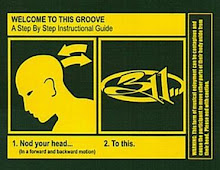Just recently, sparked by my curiosity of pundits claiming that Mitt Romney won the first debate in Denver handily, I began to look a little closer at both candidates and their so-called plans for the future. I went to Governor Romney's website to try to understand how someone with no concrete plans or ideas could win a debate. After I bounced through the splash page that is soliciting money like a dancer at the Crazy Horse II, I found Governor Romney's 5-Point Plan.
This plan is eight pages long, but if you cannot get through that he has simplified it with a one-page version. The first three pages are dedicated to the supposed failures of President Obama. The latest recession is mentioned and compared to the previous ten recessions - in case you don't know, that takes us back to 1949 and conveniently omits the Great Depression and the Recessions of 1937 and 1945 - better know as three of the four most comparable to the latest - and how it has taken longer to recover from this latest recession. The latest recession was the longest and had the steepest GDP decline of any of the ten it is compared with and has only one real equal in common sense: the Early 1980s Recession.
This is the beacon on the hill, if you will, for Republicans because it was Reagan's Recession. I find this one interesting because Reagan handled it the way both presidential candidates propose to handle jump starting the current economic situation. First, the Economic Recovery Tax Act of 1981 was passed. This piece of legislation did this:
1) Further deregulated Savings & Loan institutions, making it easier for them to lend in order to spur economic growth because they were not required to actually possess the money they were lending and they could make loans to anyone because loan-to-value ratios were eliminated.
2) Reduced the marginal tax rate 23% - 20% of that reduction went to the top earners, taking their taxes from 70% to 50% on money earned over $85,600. (The household median income in 1982 was $19,004 in 1982 - according to the U.S. Census Bureau, "household median income" is defined as "the amount which divides the income distribution into two equal groups, half having income above that amount, and half having income below that amount."
3) Reduced the capital gains tax from 28% to 20%.
This idea is alluded to very non-specifically is Governor Romney's 5-Point Plan. He says he will reduce the marginal tax rate by 20%. But will it be like Reagan's plan, where almost all of the reduction went to the top earners? He also, like Reagan, says he wants to reduce federal spending, but he has given no further specifics than eliminating Big Bird and his pals on Sesame Street. This is a measly .00014% of the federal budget.
Anyway, there are some other ideas about affluent seniors and broadening the tax base to make everything revenue-neutral and then three pages of sources that supposedly support these vague assertions. Regardless, I learned nothing other than what Governor Romney would learn if he won the election, what President Obama has learned and what Reagan learned sitting in the Oval Office - we must pay for services.
Contrary to popular Republican belief, Reagan didn't end the recession with the Economic Recovery Tax Act of 1981. Along came 1982 and the Tax Equity and Fiscal Responsibility Act of 1982. It rescinded many items of the previous tax legislation and instituted a three-year, $100 billion tax hike—the largest tax increase since World War II and the largest peacetime tax hike in history. Federal revenue grew and Reagan went on to raise taxes eleven times, including tax hikes on gasoline, cigarettes and capital gains and to triple the national debt while in office.
President Obama's plan to raise taxes on the highest earners isn't a cure-all. It needs to be coupled with other legislation, but at least it is a plan and it is specific. It's not easy - even Reagan said "There are no easy answers, but there are simple answers. We must have the courage to do what we know is morally right."
The title quote is from Confucius.

No comments:
Post a Comment